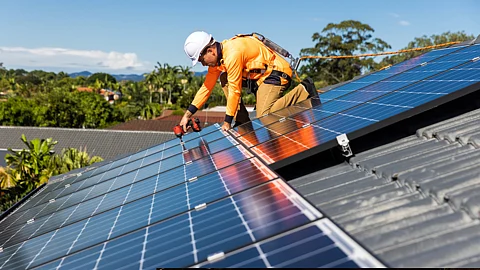

Tata Power Renewable Energy Limited (TPREL) has taken a step into new territory by signing its first standalone Battery Energy Storage Purchase Agreement (BESPA) with NHPC. The project is aimed at installing a 30 MW/120 MWh battery energy storage system (BESS) at a 220 kV substation in Area Code, Kerala. If all goes as planned, this could help the state manage power demand better during peak hours.
This agreement comes under NHPC’s broader push to develop battery storage capacity in Kerala—specifically 125 MW/500 MWh—through a tariff-based competitive bidding process supported by Viability Gap Funding. The end user of this project will be Kerala State Electricity Board Limited (KSEB).
With Kerala increasingly turning to solar and other renewables, this storage system is expected to help balance the grid when the sun isn’t shining or when demand suddenly spikes. This could allow more flexibility in how and when renewable power is used, reducing dependence on fossil fuels.
The BESS project is expected to be commissioned within 15 months. Once up and running, it will operate under a 12-year agreement and is part of the Centre’s broader goal to reach 500 GW of non-fossil fuel energy capacity by 2030.
TPREL already has experience pairing solar with battery storage. At Rajnandgaon in Chhattisgarh, it runs a project with a 100 MW solar photovoltaic plant coupled with a 120 MWh utility-scale BESS. But that project was developed under an EPC contract. The Kerala project, on the other hand, is TPREL’s first foray into the standalone BESS segment.
With this addition, TPREL’s total renewable portfolio stands at around 10.9 GW. Out of this, about 5.6 GW is already operational—including 4.6 GW of solar and 1 GW of wind. Another 5.3 GW is currently at different stages of development.
This Kerala battery project might just mark the beginning of a bigger move into storage as part of the company’s larger renewable playbook.